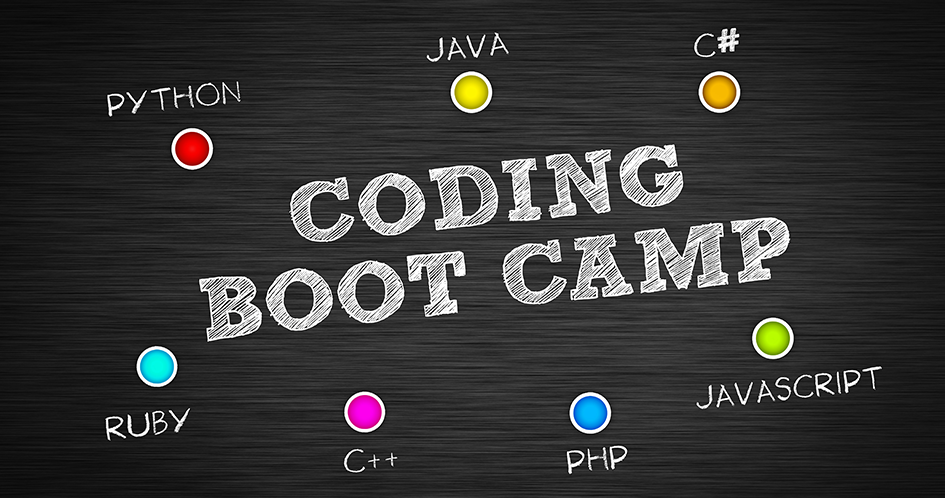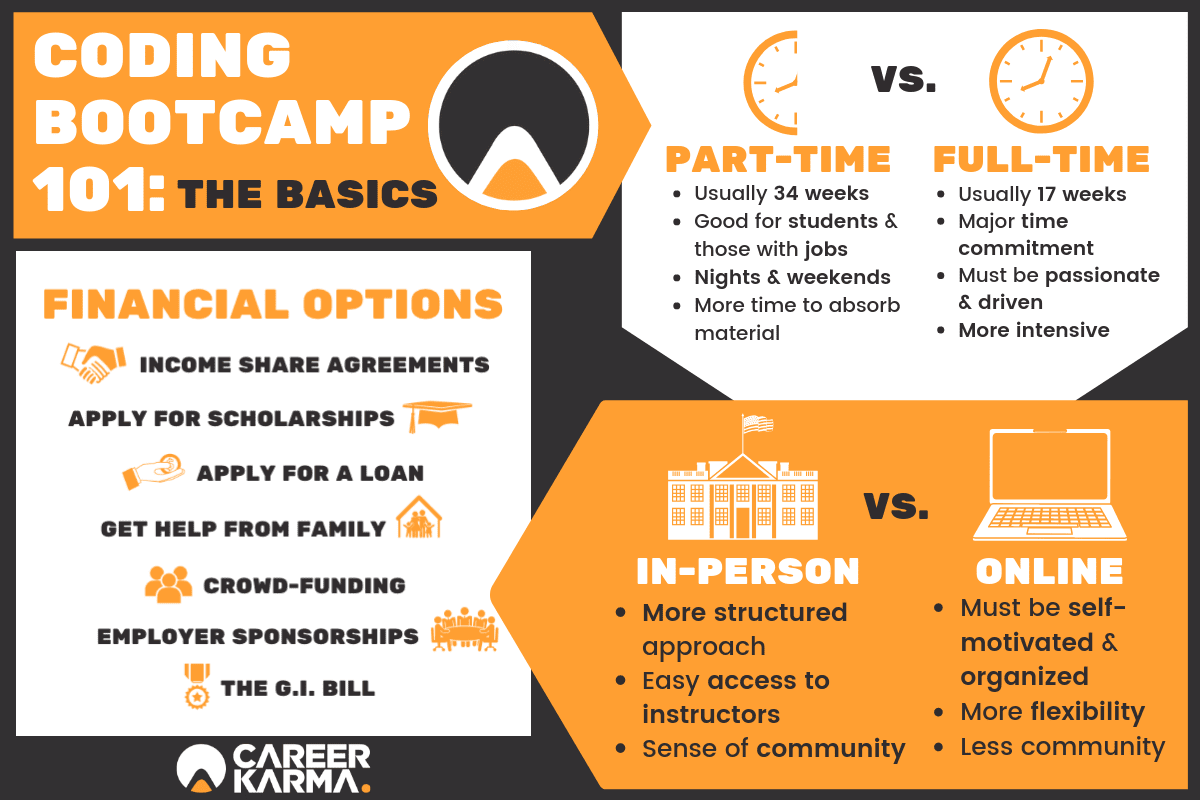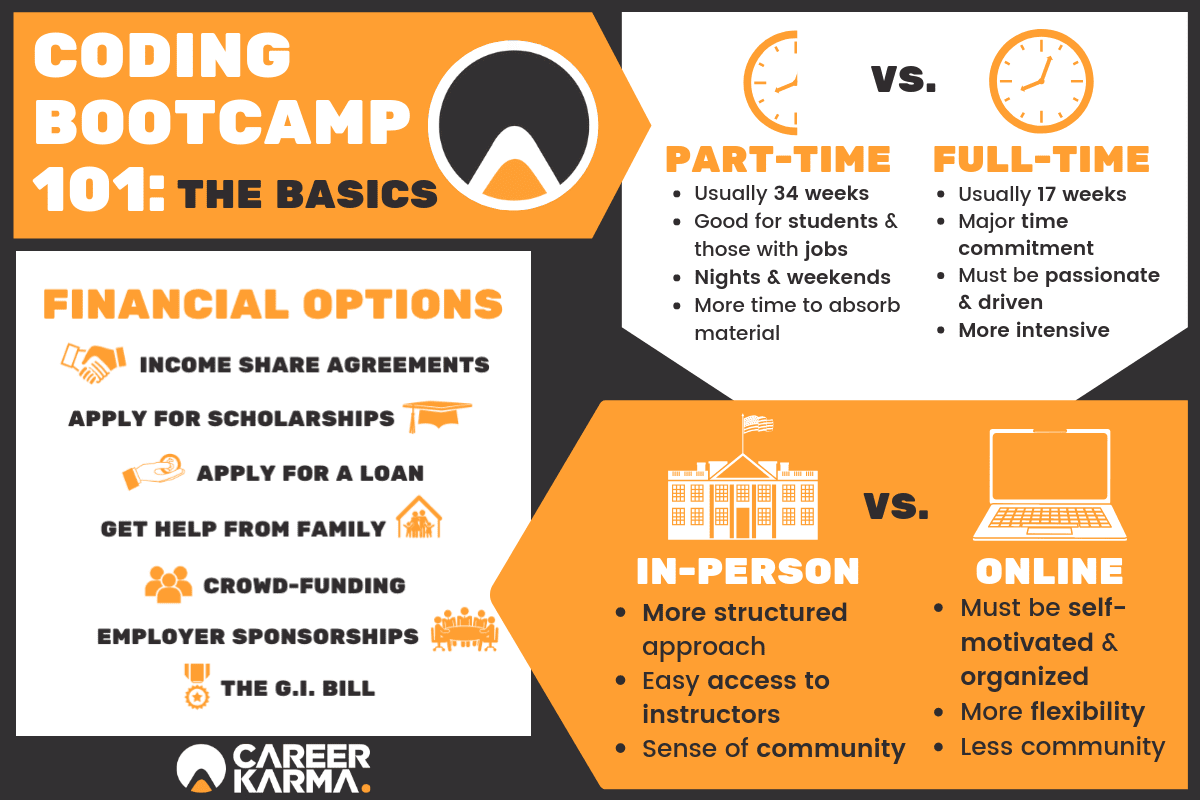Career Prospects and Job Search

Coding bootcamps aim to equip students with in-demand tech skills, leading to successful careers in the tech industry. The effectiveness of this training is often measured by the employment outcomes of its graduates. Understanding the typical job placement rates, common job roles, and job search support provided by bootcamps is crucial for prospective students weighing their options.
The job placement rate for coding bootcamp graduates varies significantly depending on the bootcamp itself, the specific program, the student’s individual skills and effort, and prevailing economic conditions. While some bootcamps boast near 100% placement rates, a more realistic average across reputable programs might fall somewhere between 70% and 90% within a few months of graduation. These figures often represent graduates securing roles related to their bootcamp training. It’s important to note that these statistics can be influenced by factors like the definition of “successful placement” (e.g., full-time employment versus freelance work) and the time frame considered.
Common Job Roles for Bootcamp Graduates, What is coding bootcamp like
Graduates from coding bootcamps typically find employment in a variety of roles. The specific roles depend heavily on the bootcamp’s curriculum focus (e.g., front-end, back-end, full-stack development, data science, cybersecurity). Common roles include front-end developers, back-end developers, full-stack developers, web developers, data analysts, and QA testers. Some graduates may also find positions as junior software engineers or DevOps engineers, depending on their skills and experience. For example, a graduate specializing in front-end development might secure a role building user interfaces for websites or applications, while a back-end graduate might focus on server-side logic and database management.
Job Search Resources and Strategies Provided by Bootcamps
Most reputable coding bootcamps recognize the importance of career services and offer a range of resources to help graduates find employment. These resources are often integral to the overall bootcamp experience and are designed to bridge the gap between completing the program and securing a job. The support provided typically extends beyond the completion of the curriculum.
- Career Counseling and Resume/Portfolio Review: Bootcamps often provide personalized career counseling sessions to help graduates refine their job search strategies, tailor their resumes and portfolios to specific job descriptions, and practice interviewing skills.
- Networking Events and Workshops: Many bootcamps organize networking events, workshops, and hackathons that connect graduates with potential employers and industry professionals. These events provide valuable opportunities for graduates to build their professional networks and gain exposure to various companies and job opportunities.
- Job Boards and Job Placement Assistance: Bootcamps frequently maintain their own job boards, listing open positions from companies that actively recruit their graduates. Some bootcamps even have dedicated placement teams that work directly with graduates to find suitable employment opportunities.
- Mock Interviews and Interview Preparation: Practice interviews are a common feature, simulating real-world interview scenarios to help graduates build confidence and refine their interviewing skills. This can include feedback on their answers and techniques.
- Alumni Networks: Strong alumni networks can be invaluable resources, providing graduates with access to mentors, career advice, and potential job leads from previous cohorts. This peer support system can be particularly helpful in navigating the job search process.
Challenges and Rewards: What Is Coding Bootcamp Like

Coding bootcamps offer a fast-paced, intensive learning experience, leading to both significant challenges and equally rewarding outcomes. The transformative nature of the program necessitates a candid examination of both the difficulties encountered and the personal and professional benefits reaped by graduates. Successfully navigating these aspects is crucial for prospective students to manage expectations and maximize their chances of success.
The intensity of a coding bootcamp presents a unique set of hurdles. Students often grapple with a steep learning curve, demanding significant time commitment and dedication. The compressed timeframe necessitates efficient time management and robust self-discipline.
Common Challenges Faced by Coding Bootcamp Students
The demanding nature of a coding bootcamp requires significant dedication and effective strategies for managing the workload. Many students report feeling overwhelmed by the sheer volume of material covered in a short period. This is compounded by the steep learning curve inherent in mastering new programming languages and concepts. Effective time management becomes paramount, demanding students prioritize tasks, manage their time effectively, and maintain a healthy work-life balance to avoid burnout. Many bootcamps offer support resources like mentorship programs and study groups to help students navigate these challenges. For example, a student might find themselves struggling to balance coding assignments with a part-time job or family responsibilities, requiring them to develop strong organizational and prioritization skills.
Personal and Professional Rewards of Completing a Coding Bootcamp
Completing a coding bootcamp can be incredibly rewarding on both a personal and professional level. Personally, graduates often report a heightened sense of accomplishment and increased self-confidence. The intensive learning process fosters problem-solving skills, resilience, and a growth mindset, traits valuable far beyond the tech industry. Professionally, bootcamps provide a pathway to a lucrative and in-demand career. Many graduates secure jobs as software developers, web developers, data analysts, or other related roles shortly after completing their program. For instance, a graduate might find their newly acquired skills allow them to transition from a less fulfilling career to a more rewarding and higher-paying position in the tech sector.
In-Person vs. Online Bootcamp Experiences
The choice between an in-person and an online bootcamp significantly impacts the learning experience. In-person bootcamps offer the benefit of direct interaction with instructors and peers, fostering a collaborative learning environment and immediate feedback. The structured environment and immersive nature can enhance focus and motivation. However, they require a significant time commitment and may not be feasible for everyone due to geographical limitations or scheduling conflicts. Online bootcamps, conversely, offer flexibility and accessibility, allowing students to learn at their own pace and from anywhere with an internet connection. However, the lack of face-to-face interaction can make it challenging to build relationships with instructors and fellow students, potentially impacting collaboration and support. The success of either approach depends heavily on the individual’s learning style and self-discipline.


Tim Redaksi